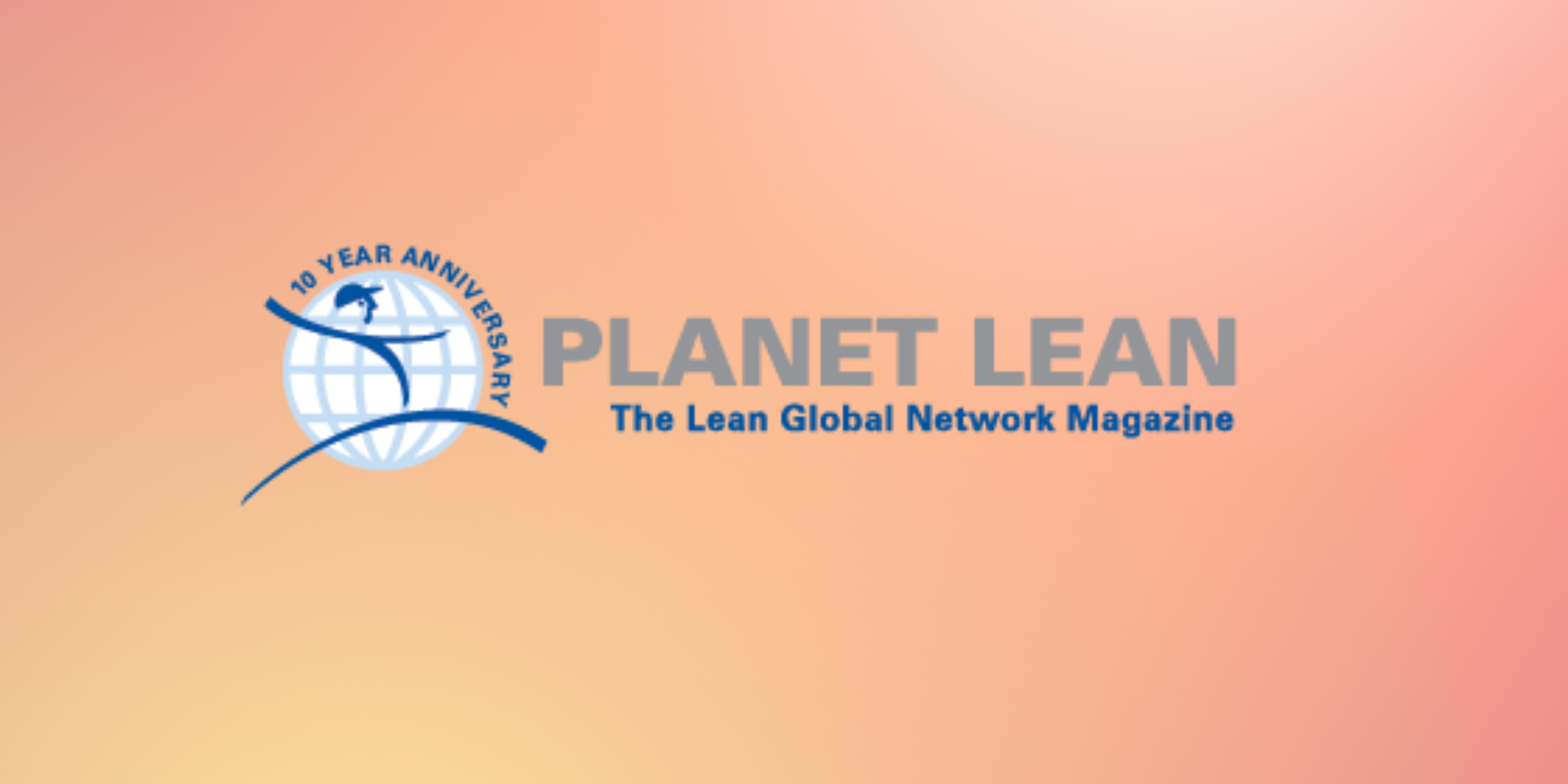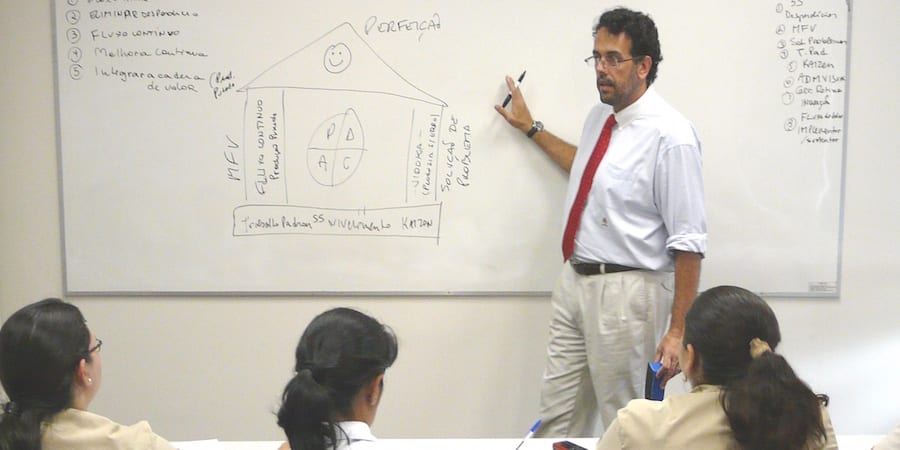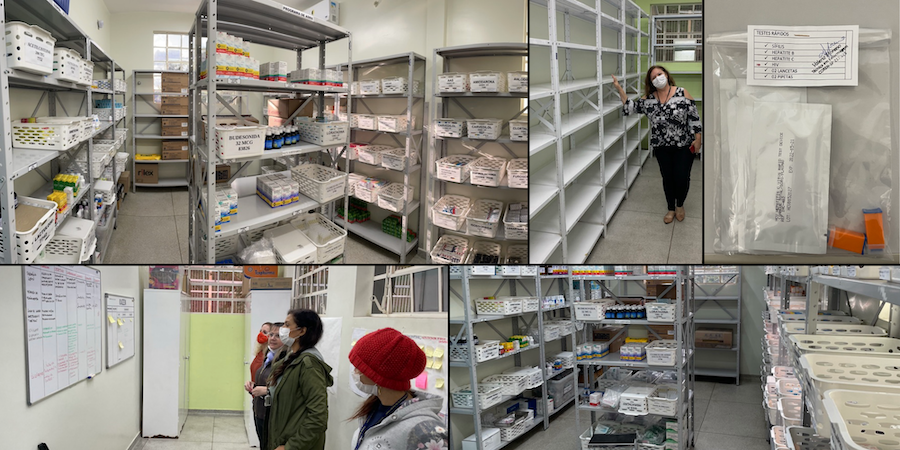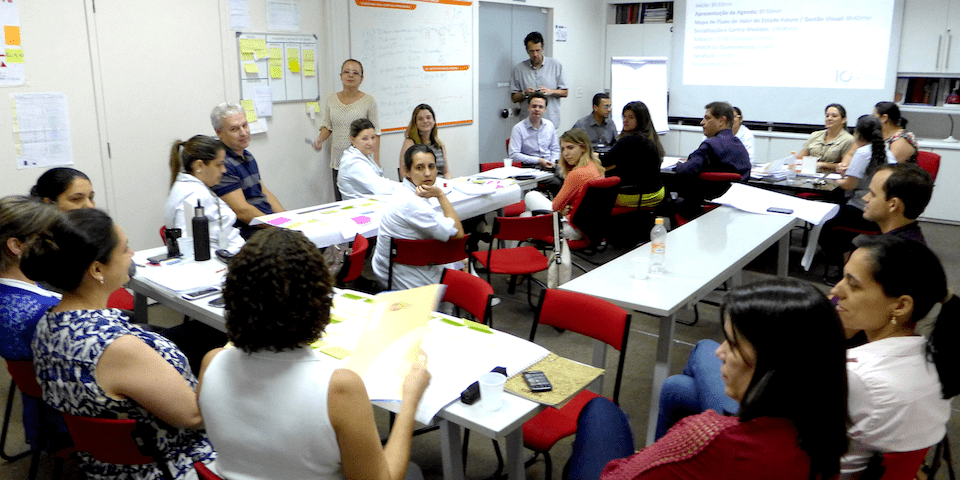
Planet Lean turns 10!
FEATURE – Ten years ago, Planet Lean was launched as a new platform for the Lean Community to share its experiences and knowledge. Our editor reflects on the magazine's mission, history and contribution of the spread of Lean Thinking.
Words: Roberto Priolo
It is hard to believe it’s been a decade since Planet Lean was launched! The world was a very different place back then. It was before the pandemic, the frightening spread of war across the planet, and the overall instability we are currently experiencing.
The lean world was different, too. When I joined the LGN, the lean discourse was zooming in on the concept of Lean Transformation – the greatest contribution to it being John Shook’s Lean Transformation Framework, which still guides countless lean turnarounds around the world.
Over the past 10 years, we also saw a huge interest in Lean Startup concepts first and in the Agile movement later. Both communities have raised interesting questions about business improvement and continuous learning, and the fact that their roots are in Lean Thinking has helped our community to develop new ways of thinking about the work.
We have also learned to see lean as a strategy (with the book The Lean Strategy by Ballé, Jones, Chaize, and Fiume) and witnessed an increased focus on coaching – or should we say sensei-ing?
As editor of Planet Lean, I have been in a very privileged position that’s allowed to observe the evolution of our movement and talk to the people who have shaped our collective understanding of Lean Thinking. Their tireless efforts to improve their organizations – coupled with the ongoing studies of our best thought leaders – has kept the lean flame burning.
For the past decade, I have also witnessed the growth of the Lean Global Network. We have extended our reach to several new countries in South America, Europe, and Asia and challenged ourselves to find new ways to interact with the Lean Community. It’s an honor to continue being part of this ever-tighter network, whose latest great experiment is the successful Lean Global Connection event.
Throughout all these changes, Planet Lean has been there. LGN started the magazine to support its mission of spreading Lean Thinking and Practice around the world, and with over 1,100 articles published to date (of which 133 are company case studies), I think we can safely say we have succeeded.
But there is a lot more to do… namely continuing to explore ways in which we can reach and influence the so-called “99 percent” – all those people and organizations that don’t know about Lean Thinking yet.
BEING THERE FOR THE COMMUNITY
As I look back on the past decade, one of times I recall with most pride, as editor of Planet Lean, is the beginning of the pandemic. At that terrible time for us all, from the loneliness of my apartment here in Barcelona, I was able to help our community to put the word out that Lean could be the answer in our darkest hour.
In those first few months, PL published a lot of content that reminded people in the business world that lean holds the key to stability and continuity. As the pandemic subsided and we started reflecting on what had occurred, it was very heartwarming to realize that lean organizations had responded to the Covid-19 crisis much better than their non-lean counterparts.
It was also an honor for me to help our friends at Lean Institute Ukraine spread the word about the great impact that Lean is having in their country under attack. In Ukraine, Lean Thinking has given organizations hope, as well as a lifeline. My friend Serhii Komberianov, President of Lean Institute Ukraine, recently told me: “Lean thinkers in Ukraine are so proud to have Planet Lean as a close friend who does so much to ensure that our voices are heard during times of great trouble.” As the editor of PL, nothing can make me happier.
I was also struck by a comment a reader made a while back. He told me that reading Planet Lean made him feel like he is not alone in the world, that there are other people facing the exact same challenges he’s facing in his transformation. Lean can be a lonely gig, but it doesn’t have to be.
CONNECTING THE (LEAN) WORLD
We are lucky enough to be part of a movement that is truly global. In these past 10 years, Planet Lean has covered lean transformations and experiments from across the world. From car dealerships in Botswana to hospitals in China and Australia, from banks in Singapore to insurance companies in Brazil, from restaurants in the USA to manufacturing companies in Turkey and city governments in the Netherlands, our articles have showed the incredible reach of Lean Thinking and proved the universality of its principles.
One of the perks of my job is being able to travel the world to document the lean journeys of these organizations. My work with Planet Lean has literally brought me all the way to the end of the world (when I visited the globe’s southernmost retailer in Punta Arenas, Chile, just last year).
Meeting so many people and featuring their stories has also made Planet Lean a powerful vehicle for the practitioners to develop meaningful connections with their peers. I can’t count the times I have been contacted by people in the community asking to be put in touch with one of our authors or featured organizations.
This is what we call “yokoten” – knowledge sharing – which is often the starting point of a lean transformation. That’s how inspiration works! I have been able to witness some impressive examples of yokoten in the past ten years, in particular in the worlds of lean healthcare (here in Catalonia, but also in Brazil) and lean hospitality (with the fantastic lean work done by our friends at Dreamplace Hotels & Resorts).
WHAT MADE PLANET LEAN SUCCESSFUL?
I think about this often. While there are many reasons behind the success of Planet Lean (like all things lean, it started as an experiment), I believe the main one is the fact that it has given the Lean Community a voice. Filtering through the noise and the different points of view that exist within our movement, PL has provided a platform to practitioners, academics, and thoughts leaders to share their knowledge and experience. It has been my intent to make the content as accessible and easy-to-consume as possible, and to ensure that, despite the many different ways of thinking, all articles, interviews, columns and case studies contribute to cementing the understanding of lean as the alternative to traditional management.
ACKNOWLEDGEMENTS
As I reflect on this decade, I realize there are so many people to thank. So, I apologize in advance if I leave anyone out. This might be the boring part for who’s reading, but it shows the huge amount of work and effort that is behind the magazine.
A big thank you – in no particular order – goes to:
- The Lean Global Network for funding Planet Lean and providing a constant flow of content ideas to populate the magazine’s editorial calendar.
- Dan Jones and René Aernoudts, my initial points of contact within LGN, for believing in this project from day one.
- Michael Ballé for being a staunch supporter of Planet Lean and, by far, our most prolific author (what’s your secret, Michael?!).
- John Shook for his wisdom and for his help on countless occasions.
- Jim Womack for his support and advice, and for taking a bet on PL with his Yokoten column.
- Matt Savas, for always being great help, a shoulder to cry on, and a friend.
- Current and past LGN ExCom members (Josh Howell, José Ferro, Oriol Cuatrecasas, René Aernoudts, Roberto Ronzani, Christopher Thompson, Cevdet Ozdogan, Tomasz Koch, Denise Bennett, and Dave Brunt) for always making sure that content is a part of the LGN equation.
- All LGN institute directors (former and current) and their wonderful teams (there is too many of you to name individually), for always being there for me, for the many invitations to your summits, and for helping to make PL a success. You are a constant source of inspiration.
- All of our authors for sharing their invaluable insights with us. A special thanks to Catherine Chabiron, Sharon Visser, Eivind Reke, Nestor Gavilan and Severino Abad for being among the most prolific authors we have had.
- Our most-featured organizations – Instituto de Oncologia do Vale, 365 bakeries, Dreamplace, SulAmerica, Consorci Sanitari del Alt-Penedes-Garraf, Theodo, and Halfway – for letting Planet Lean study your transformations in depth and share our findings with the Lean Community.
And, of course, my DEEPEST gratitude to you, our readers, for trusting Planet Lean through all these years.
Here’s to the next decade!
THE AUTHOR

Read more


NOTES FROM THE GEMBA – This month, the author meets a group of business leaders consistently breaking new ground in their exploration of the relationship between IT and sustainability by using a kaizen-like approach.


INTERVIEW – We have come to dread having to interact with customer support representatives, and quite rightly so. Basecamp has made it a mission to bring humanity back to this interaction.


PROFILE – It isn’t every day that you come across a hospital CEO coaching people on A3s and following his own standard work. So when you do, it’s important to share their story. This month we profile the CEO of a Brazilian cancer treatment center.


INTERVIEW – What is the contribution of Lean Thinking to the battle against climate change? Michael Ballé discusses the Toyota approach to sustainability and what it takes to push "green" to the top of the business agenda.
Read more


FEATURE - Planet Lean launched exactly one year ago. Editor Roberto Priolo offers some reflections and a round-up of the most popular articles we have published to date.


FEATURE – In this article, we hear about how the lean successes of one hospital inspired an entire healthcare authority to introduce changes to their processes.


FEATURE – The power of cross-pollination: learning from a manufacturing company has helped a cancer treatment center in Brazil to thrive in its lean transformation.

